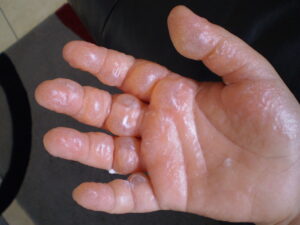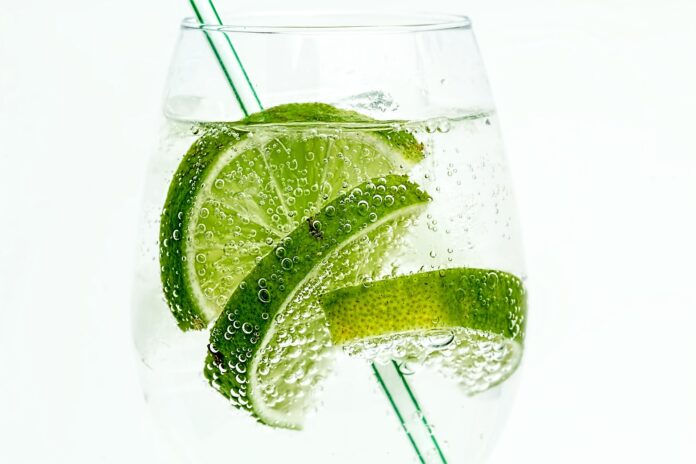With the sun-drenched days of summer just around the corner, it will soon be time for us all to embrace outdoor living. While many are already aware of the dangers of sun burn there is one seemingly harmless pastime that is now garnering newfound attention for its hidden risks – mixing cocktails under the scorching sun. It sounds hilarious, but experts are warning those who would mix drinks al fresco of a potentially serious condition known as phytophotodermatitis, or Margarita Burn, and one quick look at social media will back them up.
Phytophotodermatitis, often referred to as “lime disease,” not to be confused with Lyme disease, has long been a concern among those who regularly handle citrus fruits and other botanicals containing certain photosensitizing compounds. The chemical responsible for this phototoxic reaction, called furocoumarin, can be found in various plants, including limes, lemons, oranges, and even celery. When the skin comes into contact with these substances and is subsequently exposed to sunlight, a painful and unsightly rash can develop.

Dr. Rebecca Martinez, a dermatologist at the Manhattan Skin and Wellness Center, warns that while it might sound ridiculous, “Phytophotodermatitis is not to be taken lightly”.
“It can cause severe skin irritation, blistering, and even long-lasting hyperpigmentation, leaving a lasting reminder of a momentary lapse in caution,” she cautions, explaining that the condition occurs when the photosensitizing compounds react with UV light, damaging the DNA in skin cells and leading to an inflammatory response.
Experts recommend taking precautionary measures to prevent phytophotodermatitis while crafting cocktails in the sun. Wearing protective clothing that covers the arms and hands, including gloves, can provide a barrier between the skin and the potentially harmful botanicals. Additionally, regularly washing the hands after handling citrus fruits and herbs can help remove any lingering photosensitizing compounds.
For those who cannot resist the allure of mixing drinks outdoors, applying a broad-spectrum sunscreen with a high SPF to exposed skin is essential. However, experts caution that relying solely on sunscreen is not a foolproof solution, as its efficacy can diminish over time, especially when sweating or coming into contact with water.


